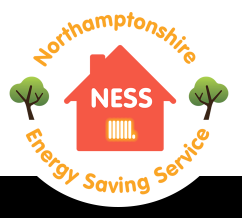Things you can do to minimise the spread of the virus
You can reduce the risk of spreading the virus by:
- Wear gloves when handling any item you think may have been contaminated by the virus
- Wash your hands regularly.
- Wear a face covering in all shops and on Public Transport.
- Avoid car sharing – you MUST wear face coverings if you share cars with anyone outside of your household or bubble and have the windows down, clean the door handles inside and out.
- When queuing for buses, keep 2 metres away from others whilst queuing or wear a face covering where it is crowded. On buses or trains, wear a face covering and space apart from others.
- When socialising with others outside of your household, keep 2 metres away from others, do not share items, wash hands regularly.
- If you use a smoking area, stay 2 metres away from others and avoid facing other people
- This virus is quite transmissible through relatively casual contact, making it very hard to contain. You may want to pay special attention to handles on wheelie bins and shopping trolleys as these have been handled by many other users and it is easy to pass on Covid-19 unintentionally. The virus remains active on the following surfaces as follows:
- Hard Plastics and metal - 72 hours
- Cardboard - 24 hours
Book COVID-19 tests by calling 119 or online at nhs.uk/coronavirus
If you test positive and you live with other people, you must follow the advice below
- Self-isolate for 10 days from when your symptoms started.
- All other household members must stay at home for 14 days from the day the first person became ill or their test was taken.
- Stay in a well-ventilated room with a window that can open, separate from other people in your home if possible. Keep the door closed.
- Use a separate bathroom from the rest of the household, if available. If this is not possible, consider having a bathroom rota for washing or bathing. You should use the facilities last, before thoroughly cleaning the bathroom.
- Use separate towels from other household members, both for bathing or showering and for hand hygiene purposes.
- Avoid using shared spaces such as kitchens whilst others are present. Take your meals back to your room to eat.
Use a dishwasher (if available) to clean and dry your used crockery and cutlery. If this is not possible, wash them by hand using detergent and warm water and dry them thoroughly, using a separate tea towel.
Stay safe and keep your friends and neighbours safe as well.
Northamptonshire Strategic Coordination Centre
Media Briefing 25th May 2020
Coronavirus - Guidance for Better Mental Health
Local Resilience Forum
The Local Resilience Forum is made up from key organisations across Northamptonshire such as, emergency services, health and local authorities who put in place plans under the Civil Contingencies Act 2004. These organisations are now operating within the strategic coordinating centre to respond to this pandemic outbreak. As part of this response you as volunteers are our key links providing the vital support needed by our communities.
Read the latest updates:
24th June
100 Days Special Report
Covid-19 Exploitation and Modern Slavery
In addition to the Rural Services Network, the Countryside Alliance is implementing activities to support rural communities in the current time and has created a resource hub. From signposting, relevant information, and other essential services to ideas on how to support communities, this hub also gives opportunities to share ideas and connect with others at a time when isolation and loneliness are on the increase.

Worried about your energy consumption? Why not look at the services and help provided by NESS. Despite the current situation the service is still running and and as it is a fuel poverty project, there may be more people who are concerned about their energy costs during this time.
Anyone with concerns can still call NESS on 01604 623700 or email enquiries@nessteam.org.uk
or go to their website